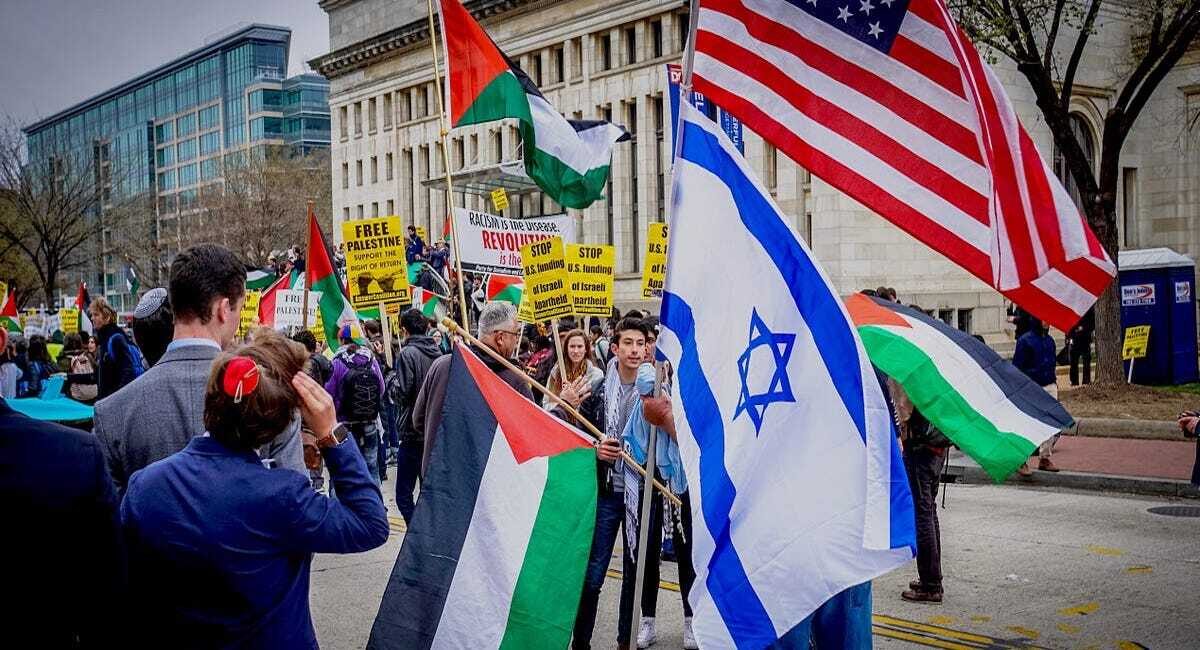Israeli apartheid in Al Khalil
Our interfaith delegation #JustFaith17 was in Al Khalil (Hebron) recently. While there they witnessed the epitome of the Israeli occupation. What Palestinians in Hebron endure provides hard evidence that Israel is violating international laws by restricting residents' free movement, by restricting their right to worship, and there to obtain a quality standard of living.
The delegation, which was organized by the Interfaith Peace-Builders and co-sponsored by AMP, Jewish Voice for Peace, and the Presbyterian Peace Fellowship, has been on the ground for nearly two weeks. In Hebron, they saw first-hand the impact of Israeli apartheid.
Youth Against Settlements, a group that teaches non-violences to Palestinian youth, filmed an exchanged between our Muslim delegates and Israeli soldiers who refused to allow them to walk down Shuhada Street simply because of their religion. It reminded me of a similar experience I had in 2010, when soldiers also prevented me from merely crossing the street. Not only was I impacted by this 20- minute encounter in the blazing sun the entire group of Christians, with whom I was traveling, also were held up because of me.
In 1994, Zionist militant Baruch Goldstein entered Al Ibrahimi mosque and opened fire on worshipers. He killed 29 in cold blood. In the ensuing chaos that included the Israeli military, another 11 Palestinians were killed. That bloody day took the lives of 41 people.
Israeli authorities shut down the mosque. When they reopened it, it was divided. Israeli authorities gave two-thirds of the site to Jews, while Palestinian Muslims were left with one-third. In addition, checkpoints, security cameras and other obstacles made moving around Hebron extremely difficult.
I did not speak much about my experience because Palestinians in Hebron go through this and worse everyday. It doesn't make it any more important or compelling because an American convert was discriminated against. I did make two videos to show to audiences so they would get a glimpse into what a military occupation means.
During my trip with Sabeel in 2010, I learned that the small space left for Muslims in Al Ibrahimi mosque was filled with 12 surveillance cameras that not only flimed but also recorded audio. We had to pass through three checkpoints to get into the mosque. The old city market, which is only about 1/2 square mile, was brought to a standstill. Israel had placed 102 closures and checkpoints to prohibit free trade and access to the area. At least 1,700 shops closed due to lack of business or under Israeli military order.
Roughly 30,000 Palestinians lived in Hebron in 2010 and there were about 800 settlers. The apartheid system was put in place for the convenience of the 800 Israelis who were living in Hebron illegally.
I believe those numbers may have changed a bit since 2010, but the realities on the ground have only gotten worse. Issa Amro, the co-founder of Youth Against Settlements, currently is on trial on 18 trumped up, outdated and previously dismissed charges. We have been working hard, alongside Codepink, to seek justice for Issa. Settler violence is much worse and out of control. Palestinian children are regularly hurt by settlers wielding weapons.
We must look to Al Khalil and resolve ourselves to work harder in the United States to change our foreign policy in the region to one that is more fair and more balanced. We cannot sit idly by while Israel gets away with these human rights abuses with impunity.



